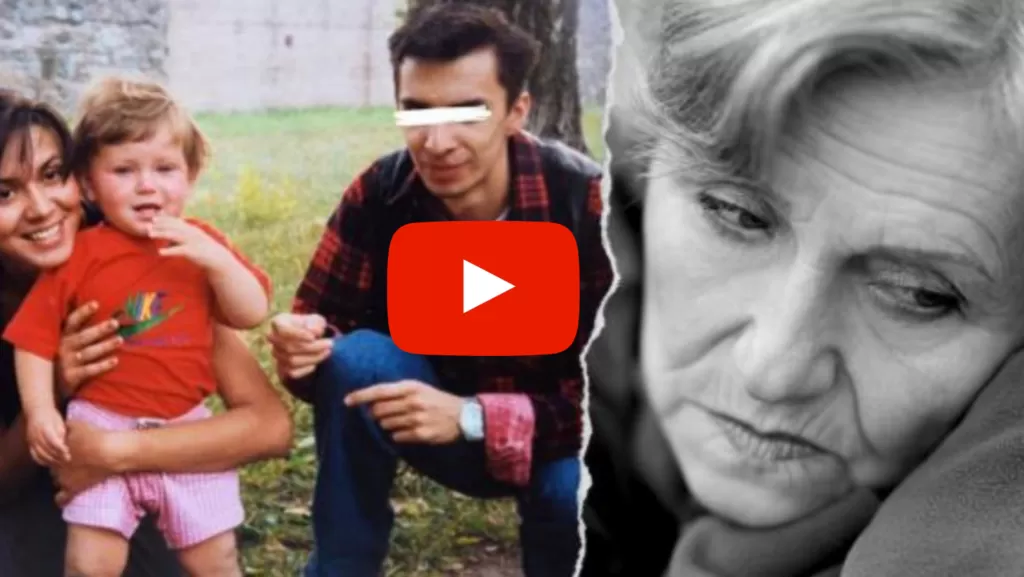Mom Wonders How To Tell Her 30-Year-Old Daughter That Her Father Is Actually Her Brother

Most of us have family secrets, but the secret one mother has been holding for 30 years is on a whole other level. Writing into an online advice column, she revealed the most unconventional choice of sperm donor she and her husband made.
Now, their daughter is an adult and she has no idea how to break the shocking news to her.
A mother wrote to a therapist for advice on how to tell her daughter who her real father is — the man she thinks is her brother.
Now, it’s not what you think, and it’s not like it’s exactly uncommon to have a deeply held family secret. It’s such a commonly shared experience that there are entire TV shows dedicated to sussing out and uncovering the dark truths about our families’ pasts.
Be that as it may, though, this woman’s story is a bit of a doozy. Writing into The Atlantic’s “Dear Therapist” advice column, the woman described how when she married her husband, who already had two adult children, “we both wanted to have a child together.”
However, her husband had had a vasectomy years prior, “too long ago to get the procedure reversed,” she added. They were averse to using a sperm bank, so they had to find another solution.
The mom used her husband’s adult son’s sperm so that their baby would still share her husband’s DNA.
“We felt that was the best decision,” she wrote. “Our child would have my husband’s genes, and we knew my stepson’s health, personality, and intelligence.” Well, that’s certainly one way to do it — and it all worked fine for a while.
But now, it seems time for a long overdue reckoning with the truth, and she has absolutely no idea how to broach it. The truth alone is a lot, of course, but it also complicates every single other family relationship her daughter has.
As she explained it, “Our daughter is 30 now. How do we tell her that her ‘father’ is her grandfather, her ‘brother’ is her father, her ‘sister’ is her aunt, and her ‘nephew’ is her half-brother?”
She added that “my husband and I are anxious, confused, and worried about telling her,” and that it’s particularly hard on her husband. “He wants our daughter to know that he will always and forever be her father,” she said.
The therapist advised that in telling her daughter who her real father is, she must also acknowledge the harsh truth — she’s been lying to her daughter for 30 years.
“There are two truths your daughter will be absorbing simultaneously,” The Atlantic’s therapist wrote. “First, the person she calls her brother is her biological father, and second, the people she calls her parents have deceived her for 30 years.”
Betrayal is a common theme among people who find out such secrets. In 2022, writer Laura Friedman Williams told us of her own struggle to deal with her feelings after her mother revealed her biological father was actually a sperm donor.
“I forgive and then I don’t,” Friedman Williams wrote. “I come to peace with the truth and then I feel a terrifying surge of rage. It doesn’t feel fair that I didn’t get a shot at the truth in a timely manner, that I am forever trying to catch up to what someone else had known when it should have been my own knowing.”
Psychologists say this particular type of secret, called internal family secrets, wherein the entire family knows the truth with the exception of one person, can be particularly damaging. They create “us and them” delineations within the family that can make feelings of betrayal all the more difficult to deal with.
Finding out shocking truths about paternity is an increasingly common experience since the advent of DNA ancestry testing.
Suffice to say, it’s not just this woman who wrote into The Atlantic who is in a quandary as to how to tell her daughter who her real father is. The rise of genetic testing kits like 23andMe and those offered by Ancestry.com have made discovery family secrets about paternity almost routine, and social media is full of stories about people inadvertently discovering their real birth fathers.
It’s becoming so common, in fact, that lawyers who specialize in family law and paternity have reported a spike in cases because of the testing kits. Lawyer Adam B. Wolf, who specializes in paternity fraud cases, told NBC News that his and his colleagues’ phones start ringing each year in February with cases arising from people who received DNA ancestry kits for Christmas.
And there have been so many paternity cases arising from ancestry testing kits in the United Kingdom that the country’s watchdog organization Human Fertility and Embryology Authority issued a warning in 2018 about the emotional blowback the experience has potential to cause.
Still, emotional fallout is rarely a good reason to keep a secret, which can be nearly as psychologically damaging to the secret-keeper as the one who’s been kept in the dark.
“The truth will set you free,” as the old saying goes. Or, as The Atlantic’s therapist put it to this worried mother, “the truth, no matter how messy, is what makes people feel safe and connected.”






